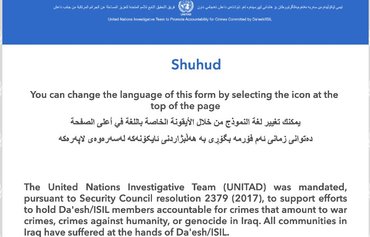On the brink of defeat in Iraq and Syria, the "Islamic State of Iraq and Syria" (ISIS) has been taking refuge in its online activity -- but even online, experts say it is in decline.
Back in 2015, when the extremist group held territory the size of Italy, it also commanded a huge digital presence, flooding the web with slick propaganda lionising its fighters and romanticising life under their rule.
Today, with many of the top ISIS leaders either dead or on the run, what remains of the group's once-sophisticated propaganda machine is also a shadow of its former self.
Their media centres destroyed, remaining propagandists find themselves struggling to maintain an internet connection while battling surveillance from international intelligence services.
The group is less and less vocal on the web, largely leaving supporters whom it cannot control to speak in its name.
"It is almost as if someone has pressed the mute button on ISIS," said Charlie Winter, a researcher at King's College London who has been studying ISIS communications for years.
Between November 8th and 9th the group even went completely silent for a full 24 hours in what Winter said was an "unprecedented" break from social media.
In 2015, when ISIS was ruling over roughly seven million people in Iraq and Syria, its propagandists produced "content from 38 different media offices from West Africa to Afghanistan", Winter said.
But by December, more than three quarters of these outlets had been "almost totally silenced", he added.
Pushed to the 'dark web'
Last March, as Iraqi forces were ousting ISIS from Mosul, an AFP journalist was able to pick through the wreckage of what was once an extremist media centre.
Between the burnt walls of the villa in an upscale part of the city were the remains of computers, printers and broadcasting equipment.
In the months before and since, the international coalition fighting ISIS has repeatedly announced the deaths of senior ISIS communications officers, usually in airstrikes.
Among them was the top strategist and spokesman Abu Mohamed al-Adnani, killed in a US strike in northern Syria in August 2016.
These days ISIS propagandists mostly use the web to encourage supporters to launch attacks on their own initiative, with the much-weakened group unable to play a direct hand in organising them.
These calls are often issued via the "deep web", a heavily encrypted part of the internet which is almost impossible to regulate, or the Telegram app.
Winter said he had seen a trend emerging of posts seeking to cultivate a sense of nostalgia among supporters for the height of the group's power.
By portraying events three years ago as a "golden age" stolen by "the enemies of Islam", ISIS is hoping to convince new recruits that such times could come again if they join the cause, Winter said.

![This July 5th, 2014 screenshot is taken from a propaganda video released by al-Furqan Media, allegedly showing 'Islamic State of Iraq and Syria' leader Abu Bakr al-Baghdadi speaking at a mosque in Mosul. [AFP]](/cnmi_di/images/2018/01/12/11072-Abu-Bakr-Baghdadi-600_384.jpg)






